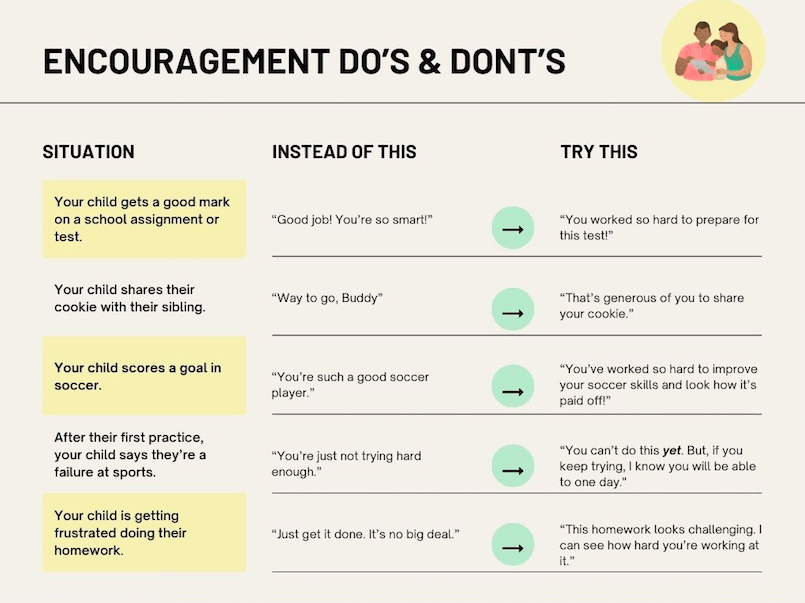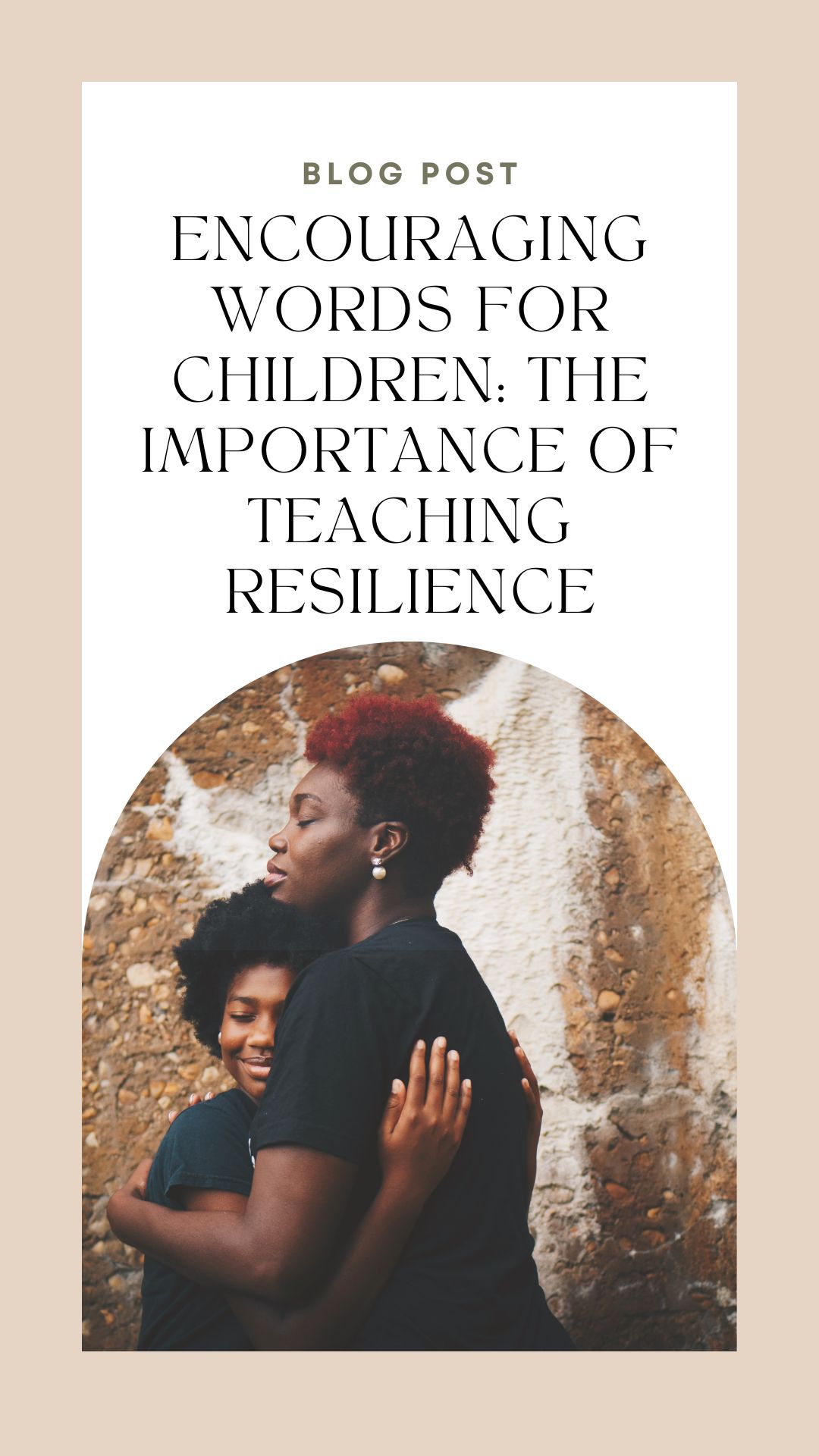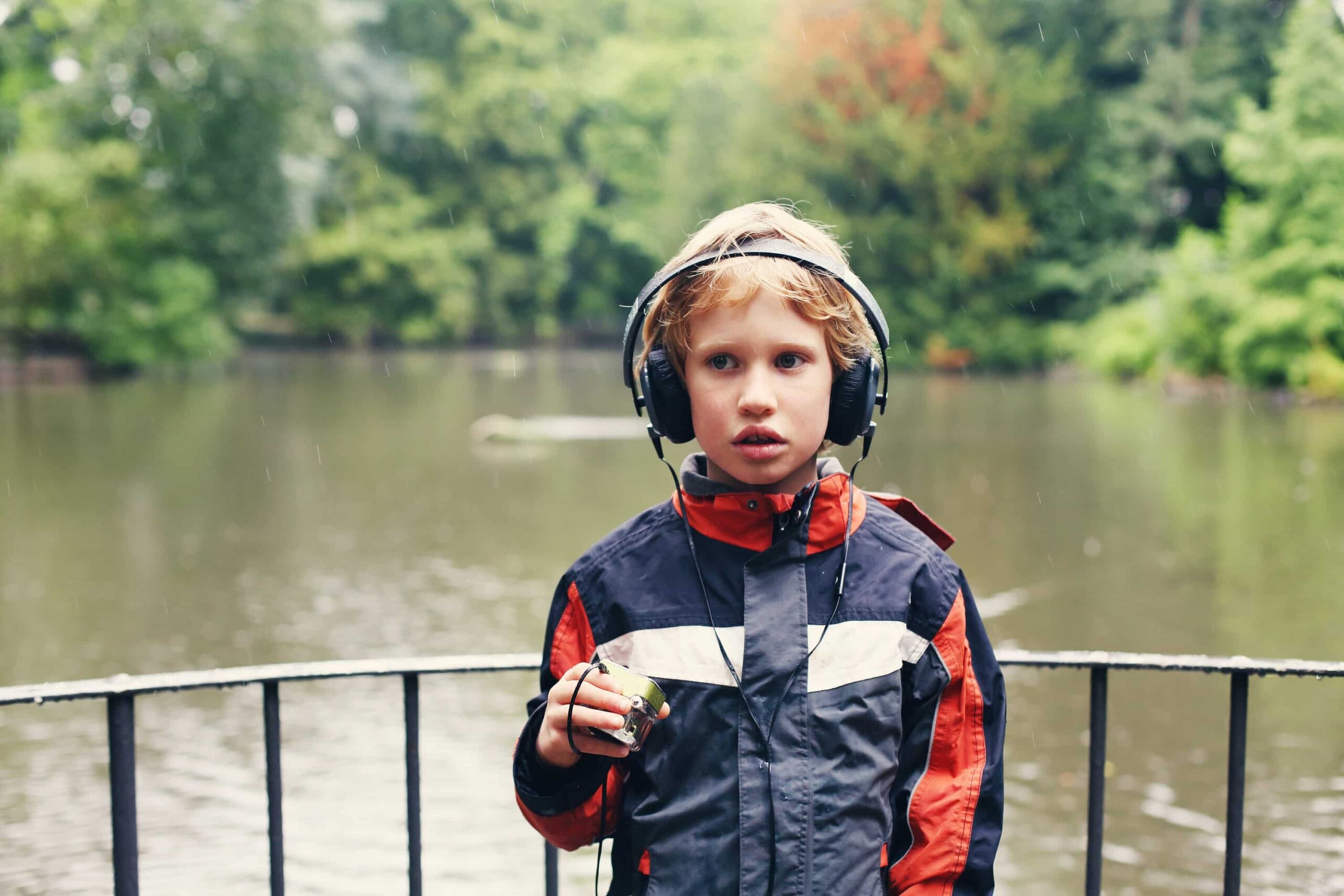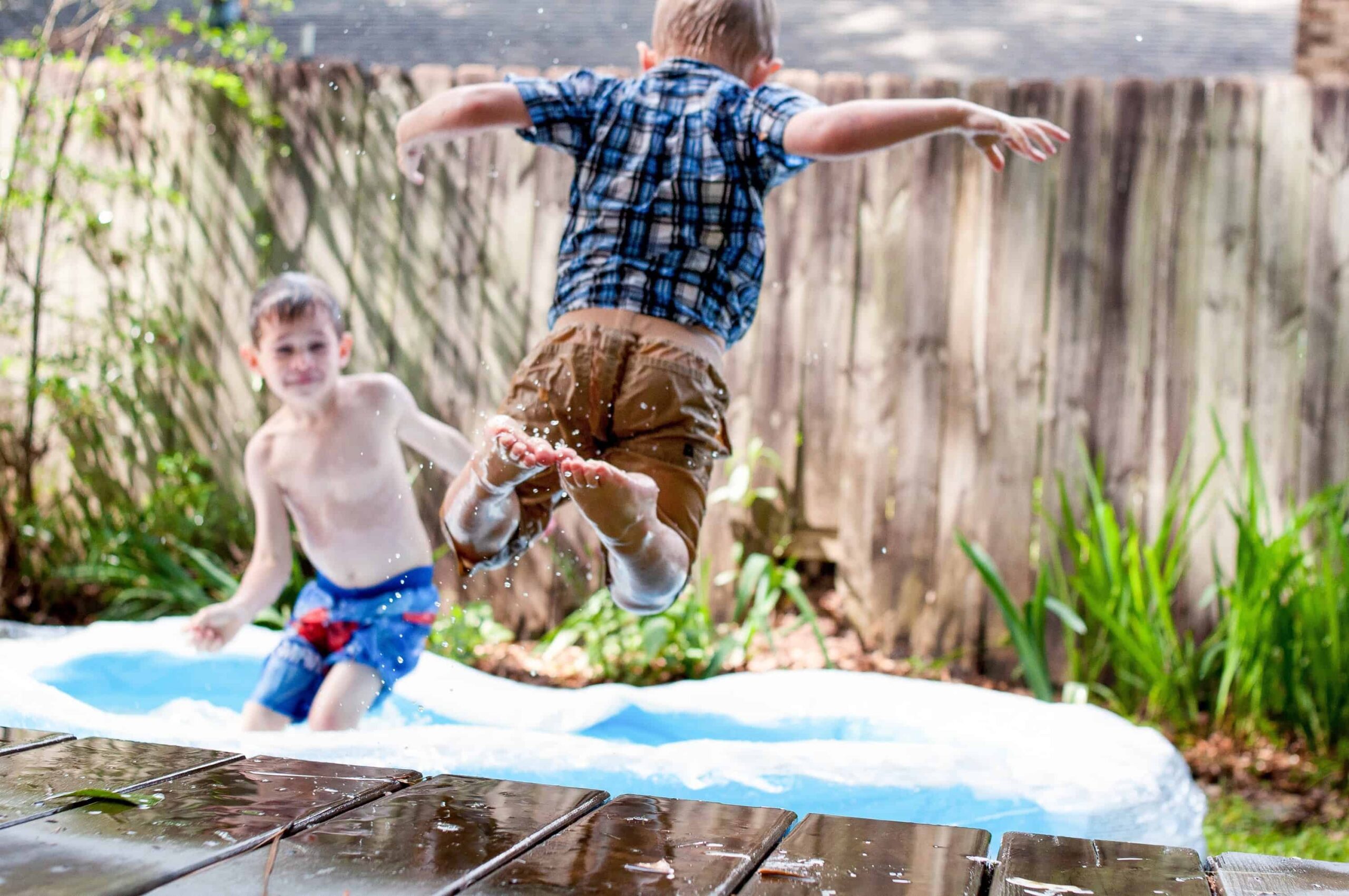Table of Contents
- What is the psychology behind encouragement?
- How encouraging words help children in difficult moments
- How encouragement can provide a sense of security for children
- Creating security in the classroom through encouraging words
- What are the effects of negative feedback?
- Encouragement isn’t just “good job” and “way to go”
- What is a growth mindset?
- The link between a growth mindset and encouraging words
- How to offer encouragement to your children
- Conclusion
Looking back at my own childhood, I remember distinctly how my mother offered encouraging words through all of my life’s ups and downs. She was always there cheering me on, even when I struggled or failed at something. I learned early that those mistakes or failures were opportunities to learn and that it was okay to try again.
As a mother now, I strive to model my own parenting after my mother and encourage my children to believe in themselves and their abilities.

In my role as an elementary teacher, I have often seen the result of children not receiving encouragement from their parents or guardians. Children who do not often hear encouraging words from their parents are usually less confident and have a bleaker outlook on life. Which makes sense; why would you have a positive outlook on life, if you don’t have a positive view of yourself?
Seeing this discrepancy between children who do and do not receive encouragement led me to explore the connection between encouraging words and self-esteem in children. What is the relationship between those two things, and how can we, as parents, ensure that our children are growing up with the inner confidence to tackle all of life’s ups and downs? Here, we delve deeply into the psychology behind encouragement and its impact on child development.

What is the psychology behind encouragement?
The American Psychological Association explains the psychology behind encouragement and how it impacts people. They explain that “[a]t its most basic level, encouragement is the expression of affirmation through language or other symbolic representations to instill courage, perseverance, confidence, inspiration, or hope in a person(s) within the context of addressing a challenging situation or realizing a potential.”
Psychiatrist Rudolf Dreikurs had a theory about encouragement that viewed encouraging words as essential to improving behavior and fostering positive social relationships. In his exploration of constructive behavior versus coercive discipline, Dreikurs determined that encouragement plays a large role in shaping a positive outcome from a challenging situation. He also explains that “encouragement and positive support have a direct correlation with improved behavior in others.”

How encouraging words help children in difficult moments
Encouraging words aren’t just something nice we say to our children when they do something well. They carry much more significance than that. Encouragement helps to develop a child’s emotional resiliency. When faced with a difficult situation, the child has the confidence and stamina to overcome it.
When a child encounters a difficult situation, they pull on their inner strength to deal with it. If that inner strength has been fortified by a lifetime of hearing encouraging words from their parents, then the child will have a greater ability to manage their emotions, make positive decisions, and solve problems themselves.
Knowing their parent believes in them, a child can recognize their own inner strength and pull on that when times are tough. Not only that but encouraging words also help to foster a sense of security in children. They know that they are safe to make mistakes or work through something that is challenging them.
How encouragement can provide a sense of security for children
When my son first started school, he struggled with a communication disorder and a lot of anxiety that accompanied that. He lived in a world that was very confusing to him, and social interactions were a puzzle. However, with the resilience and confidence that he had developed, he felt secure enough to venture out into that Kindergarten world. And, despite feeling nervous, confused, and not a little lost, he was ready for school.
I like to think that his father and I played a positive part in that development. We always tried to encourage him every step of the way and let him know that he was capable of doing great things.
Studies have shown that encouraging words can help to rejuvenate the brain and activate the reward circuit of the brain. Positive words can trigger the prefrontal cortex, the area of the brain that is associated with creativity and cognitive functions like memory, thinking, and information processing. Encouraging words also boost dopamine levels in the brain, which in turn increases motivation and focus. This increase in positivity in the brain helps children to feel more secure in themselves and able to tackle life’s difficult challenges.

Creating security in the classroom through encouraging words
In one of my Grade 4 classes that I taught, I saw firsthand the benefit of encouraging words for children. I had one student who was convinced that she was terrible at math. Nothing would change her mind, she was just terrible at math and had severe math anxiety.
I made it my mission that year to help her overcome this sense of failure with math. I offered a lot of encouragement throughout the year. Not just when she was successful, but also when she persevered and didn’t give up. Slowly but surely, her confidence improved.
By the end of the school year, she felt much better in math class. She would volunteer to share her answers with the class and was incredibly proud of herself for doing so. Her mother reached out to me after that school year. She told me how grateful she was that her daughter no longer hated math.
The encouragement and support were just what she needed to overcome that obstacle. Had I been the type of teacher not to address her anxiety with math or offer any form of encouragement, I don’t know that she would have overcome that.
What are the effects of negative feedback?
On the flip side of the encouragement coin is negative feedback, or criticism. While we have been exploring the impact that positive feedback and encouragement can have on a child’s development, it is also important to look at the ramifications of negative feedback.
Criticism that is not constructive or worded in a positive way can have dramatic effects on a person’s brain. Negative comments directly impact our Amygdala, the part of the brain that controls our primary emotions. This in turn unlocks our survival or stress response in the brain. It increases the flow of cortisol (a stress hormone) in our bloodstream, which makes us hyper-focused and restless.
Being continually exposed to negativity or criticism can have long-lasting effects. The effects can include lower cognitive capacities, and a dramatic decrease in creativity, attention, and motivation. So, just as encouraging words can help shape a child’s brain and help them form positive habits in life, criticism does the exact opposite.
Encouragement isn’t just “good job” and “way to go”
Despite being a form of encouraging words, phrases like “good job” or “way to go” are a form of empty praise that doesn’t really convey much at all to a child. Kids hear them all too often and therefore don’t pay much attention to them either.
If you’re looking to provide encouragement to your child, focus on the process rather than the product. Did your child practice really hard to master a new skill? Praise their hard work and effort, and tell them you’re proud of them for not giving up. Those are the qualities you want your child to be focusing on. Telling them “good job” doesn’t provide anything specific that really shows how you were paying attention.

Did your child get an A+ on a test she studied really hard for? Praise the effort, not the A. Let her know that you saw how hard she studied for that test. Let her know that she should be really proud of herself for trying her best.
As parents, we do mean well when we tell our children “Good job” or “Way to go”. And, let’s be honest and give ourselves some grace here. Kids are always wanting our attention and praise for everything they do. So it does get a tad exhausting at times. But when we can remind ourselves to offer more constructive encouragement, here are some quick switches we can make instead of the usual “good job”.

What is a growth mindset?
A growth mindset, as described by renowned psychologist Carol Dweck, is a belief system that focuses on the idea that abilities and intelligence are not “fixed” and can be developed through dedication, effort, and learning. Dweck explains that “in a growth mindset, challenges are exciting rather than threatening. So, rather than thinking ‘Oh I’m going to reveal my weaknesses’, you say ‘Wow, here is a chance to grow’.”
This type of mindset helps to develop resilience, a deep love of learning, and a willingness to embrace challenges. But, like anything in life, it has to be taught and it has to be practiced. The best teachers for fostering a growth mindset in children are us: the parents. By paying attention to the type of praise and encouragement we give our kids, we can help them to further develop their growth mindset.
The link between a growth mindset and encouraging words
Encouraging words play a role in shaping a child’s growth mindset. No matter what message those words carry, a child internalizes them, so make them count. We want to try to focus on process praise rather than person praise.
Process praise is where we praise the effort that was put in, the strategies that were used, the thoughtful concentration, or the sheer determination shown. Valuing those sorts of traits teaches our children to learn to enjoy challenges and to view failures as a chance to learn and grow.
Person praise is when the praise is focused on the individual. It sounds like “You’re so smart!” or “You’re such a great athlete!”. This creates an expectation that the child then feels they have to live up to. It makes children think that their abilities are “fixed”, that they’re either a good athlete or they’re not, there’s no changing that.
When we offer praise to our children, it is so important that we offer specific praise that is focused on the process. This will help them to further develop their growth mindset. They can then view challenges as good learning opportunities throughout their lives.

How to offer encouragement to your children
Sometimes, before you know it, you fire out a “good job!” before you can even stop yourself. Don’t panic, it won’t hurt. But, here are ten overused phrases that parents tend to shell out all too often. Keep them in mind the next time you’re praising your child. Try swapping them out for these alternatives to help foster your child’s growth mindset.
“Good job!”
This is one of my most overused expressions when I’m offering praise to my kiddos, and it’s one I’m trying to eliminate from my repertoire. It just doesn’t offer much in terms of positive feedback, and it barely shows your interest in what they’re doing. Instead, try to choose something specific that they’ve done well, and praise that instead.
“I love how you kicked the ball to your teammate!”
“You ran so fast, I could see how hard you were working!”
“Your hard work sure paid off!”
“Way to go!”
This is a nice simple congratulatory phrase to use, and there’s nothing inherently wrong with it. It just doesn’t focus on anything particular that your child accomplished. Again, try for specifics rather than generic comments.
“You did it! I knew you could.”
“You tried so hard, that is awesome!”
“You put so much detail into your picture!”
“You’re so smart!”
This is a type of person praise, and it’s what we want to try to avoid. Although we think we’re complementing our child on their intelligence, it actually creates a pressure that your child will feel they need to live up to. Praising the person rather than the process can make children feel unsure or hesitant to try new things where they might not be the best at first. We want them to value challenges and know that making mistakes is not only okay, it’s expected.
“You studied so hard for this test, and look what you accomplished!”
“You kept practicing until you got it! I’m so proud of your work ethic.”
“You didn’t give up!”
“I’m proud of you.”
This is truly a lovely sentiment coming from a parent, and this is not to say that you shouldn’t use this phrase with your children. But to make it an even stronger positive comment, be specific about what exactly you are proud of.
“Your kind actions make me so proud of you.”
“I’m so proud of the way you helped your friend when they fell down.”
“I’m proud of the way you kept trying until you mastered it.”
“Great work!”
Great work on what? Your child might’ve done something great, but if you don’t let them know what exactly you’re praising, then it kind of falls flat. Instead, let them know what exactly they did that was so great.
“I love all the detail you put into your painting.”
“You kept practicing that song, and now you play it so well.”
“Great work climbing all the way to the top!”
“You can do it!”
This phrase carries a strong message behind it, as it lets a child know that you believe in them. But, instead of just saying “You can do it”, why not be specific and let them know just how much you believe in them? Just a slight twist on this phrase can send a much more powerful message.
“I believe in you!”
“You can do hard things.”
“I know you can do this.”
“Keep it up!”
Parents typically use this phrase when they’re child is starting to falter at something, perhaps losing energy or stamina. Or perhaps it’s just that we want them to keep going. Whatever it may be, a little bit of specific encouragement can do wonders instead of a generic comment.
“You’ve come so far, keep going!”
“I love how you’re persevering!”
“Don’t give up, you’re doing great!”
“You’re incredible”
It’s a nice complement for sure, and there’s nothing wrong with it per se. But, if you want the compliment to really stick, you want to tell your child what exactly they’re incredible at. No one is great at everything, so let them know exactly what they’re excelling at.
“Wow, can you ever skate like the wind!”
“Your writing is so inspiring.”
“I love watching you _______.”
“You’re the best”
Be careful with these types of comments, because we all know that no one is “the best”. We don’t want our kids growing up with that mentality either, because it creates a negative competitiveness that is not healthy. Instead, focus on what they do really well and praise their effort and mindset.
“You’re such a great team player.”
“I love how you help others when they’re struggling.”
“You’re such a good leader, showing others how it’s done.”
“Well done!”
Another relatively harmless comment, but one that lacks specifics. What did they do well? What can you comment on that they can take away with them? Try to think of something that you can praise specifically, rather than just a generic comment.
“Not giving up is your best trait.”
“You worked so hard at that, way to go!”
“Success follows hard work.”
Conclusion
No matter what type of praise we offer our children, we always want to be mindful of what exactly we are praising. Encouraging our children with a focus on effort and mindset will help them to develop a growth mindset. They will learn to see challenges as a good thing and mistakes as something to learn from.
Try to choose phrases that focus on the process rather than the person, in order to help your child learn to value things like effort, grit, and determination. These are the traits that will help them to become successful adults who don’t shy away from new challenges.
Like this post? Click on the image below to share this on Pinterest – Thank you!












